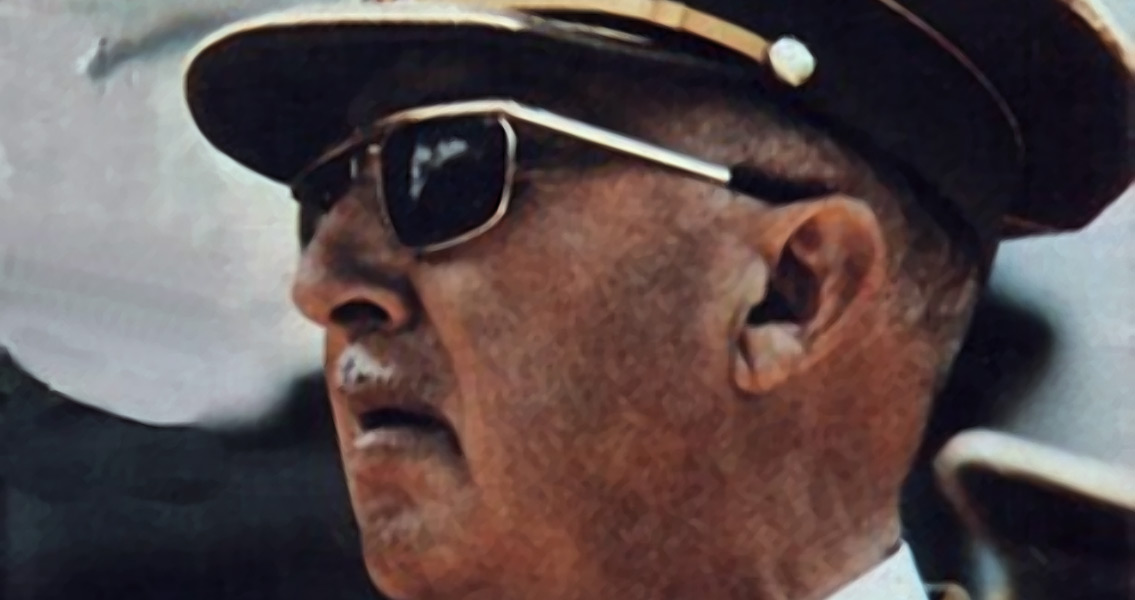<![CDATA[On 11th August 1964, eighteen year old Scotsman Stuart Christie entered an American Express office in the Spanish capital Madrid. The teenage anarchist, carrying a bag of explosives, was there to collect a letter from a contact in the Spanish anarchist organisation: Defensa Interior. Christie had arrived in Spain earlier that month, travelling on an overnight train from France with his deadly load of plastic explosives strapped to his chest. His mission: to hand deliver the explosives to a Defensa Interior operative, so they could be used to kill General Francisco Franco, the fascist leader of Spain. It seems remarkable that a teenage anarchist from Scotland found himself involved in an attempt to kill Franco, but in many ways Christie's story mirrored that of the International Brigade of the 1930s, when British volunteers went to Spain to join the fight against the Nationalists during the Spanish Civil War. Christie had become involved in left wing politics at a young age. Disillusionment with the Labour party saw him increasingly involved with various anarchist organisations and ultimately brought him into contact with operatives from Defensa Interior. Shortly before embarking on his mission to Madrid, Christie was asked in a television programme called 'Why Anarchism?' if he felt assassinating Franco could be justified. Without hesitation he answered yes. To Christie, the evils carried out in the name of the Franco regime made its leader a fair target. After he had made his way to Madrid, Christie transferred the explosives from his body to a rucksack. He headed to the American Express office to collect the letter, which he was meant to hand over to his contact, along with the explosives. As Christie told the Guardian in 2004, as soon as he arrived at the office he was suspicious his cover had been blown. “It was siesta time and the streets were quiet. Turning the corner to enter the American Express office, I was immediately aware of three smartly dressed and tight-lipped men in heavy-rimmed sunglasses standing by the entrance muttering among themselves.” His fears were confirmed when the clerk went to get the letter. He noticed a pink slip had been attached to the envelope. Before the clerk could hand it over, a supervisor stopped her, telling her to hand the pink slip to two smartly dressed men sitting at an alcove in the office. Only then did the supervisor hand the letter to Christie. “What was in the letter? How much did they know? Would I be arrested there or would they wait until I had met my contact? But if they knew about the Amex pick-up, they probably knew the details of my rendezvous as well.” Christie told the Guardian. He made his way out of the American Express office, clutching the letter. “I turned to see the two men from the alcove quickly walking out. I made a mental note to shaft American Express at every conceivable opportunity, if I were ever again offered an opportunity.” On the street, the men he had earlier noticed outside also began to follow him. Before he could escape into the crowd, Christie was apprehended at gunpoint. The Spanish authorities had infiltrated Defensa Interior long before, allowing them to set the trap. Christie and his Spanish contact: Carballo Blanco, were taken into custody. The teenager was made to watch his accomplice get tortured, although avoided the same fate himself. He signed a confession after four days in detention, and was promptly jailed. Previously, those found guilty of ‘political crimes’ in Spain faced execution by garroting. Blanco and Christie both avoided this fate but were hit with jail terms: thirty years for the former and twenty for the later. Protests erupted around the world at the treatment of the two would-be assassins, providing a poignant reminder of the authoritarian nature of the Franco regime and its treatment of political prisoners. Growing international pressure meant Christie was released after three years. Blanco was not so fortunate, serving his entire sentence and becoming the last political prisoner of the Franco regime. ]]>
The Teenage Anarchist from Scotland and the Plot to Kill Franco
